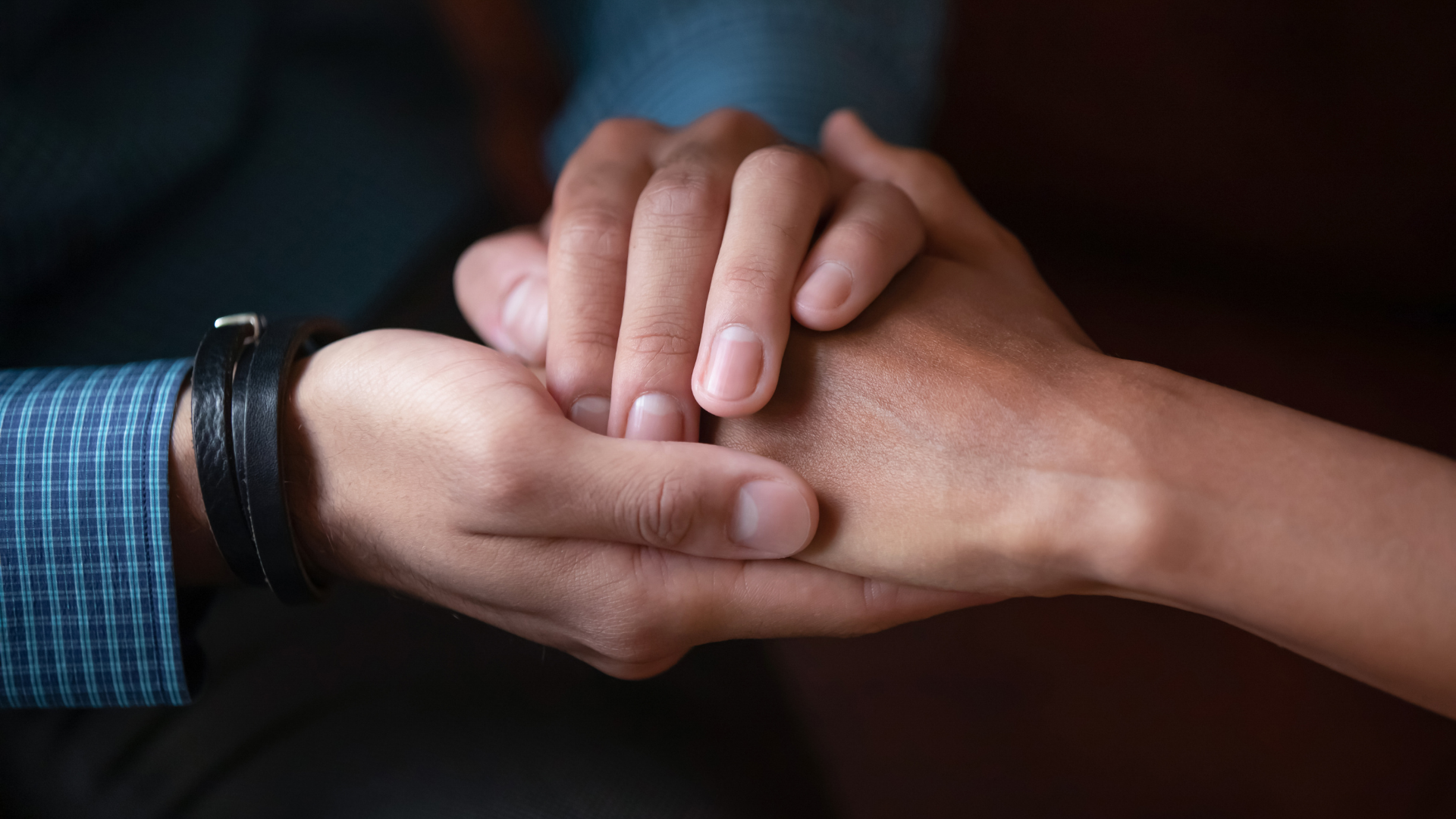The Dark Side of Empathy

Do you tend to absorb and sometimes, if not always, get overwhelmed by other people’s moods and emotions?
Do you tend to be emotionally affected by the shows you watch?
Does your physical health get affected when you encounter emotionally charged situations?
Are you very emotional?
Do you get upset easily?
Do challenges and circumstances easily overwhelm you?
If you answered "yes" to three or more of these questions, your empathy might need to undergo some checks and balances.
Mary: A Woman with too much Empathy

Let us take the story of Mary who has been an office counselor for about three years. However she plans on quitting counseling, as dealing with clients has taken a toll on her mental, emotional, relational, and even physical health.
Whenever her clients, friends, or family share their problems or painful experiences with her, she connects deeply with their pain and hurt. She often feels the need to “save" these people from their demise and feels guilty if she cannot do so. The same thing also goes on when she watches the news; she will feel awful and anxious when she hears about bad things that are happening to others. For instance, watching the latest news on COVID-19, and the war between Russia and Ukraine, has triggered her anxiety and caused her to become more fearful and panicky.
Although many of her friends appreciate Mary’s highly empathetic nature, Mary’s unregulated empathy has led her to suffer a mental health breakdown. She suffered from depression, anger, anxiety, and social withdrawal, which caused her to have trouble sleeping at night and sometimes even vent out that anger on her children and husband. Therefore, this has affected her physical health, relationships, and work performance.
The gift of empathy.

Empathy is the ability to sense others’ feelings and perspectives and take an active interest in their concern. Most people are blessed with this gift. Infants show distress sensitivity to another infant's noise as early as 18 to 72 hours after birth, according to studies conducted in the 1970s and 1980s. They also found that they are not only reacting to or being irritated by the loudness of the cries, but that these behaviours are precursors to empathetic concern. This shows that most (if not all) people are born with the ability to empathise.
Empathy enables you to put yourself in another’s shoes and take that perspective into account in your relationship with them. You must maintain and develop your relationships as it allows you to connect with others on a deeper level. Studies also show that empathy helps improve your self-esteem and gives you a greater sense of purpose in your life.
When you can harness this gift of Empathy, you will be able to:

• Be attentive to and attune to a wide range of emotional signals.
• Listen for and sense the felt but unspoken emotions in a person or group.
• Show sensitivity to and understand others’ perspectives and feelings – you can “walk a mile in the other person's moccasins.”
• Assist others based on an accurate understanding of their needs and feelings.
You may need to develop more empathy if you exhibit the following:
• You stereotype others.
• You show no understanding, misunderstand, or are surprised by others’ feelings or actions.
• You often come into conflict.
• You cannot “read” people and what they might be thinking and feeling.
• You tend to act without considering how others might feel about something.
• You come across as indifferent or uncaring.
Should you feel the need to develop this competency, you can practice the following developmental tips:

• The key to empathy is listening. Listen deeply to the other person’s words by quieting your mind, stilling the inner clamour. And listen to the other person's needs (to be respected, included, and acknowledged, for example.)
• Identify underlying problems that aren't being expressed clearly by others.
• Hear the emotions that go along with a what they say.
• When someone approaches you to express their feelings, pay attention (don't be so preoccupied that you can't talk to them about what's important to them; don't dismiss them).
• Confirm what you believe you've heard. Replicate and clarify the emotions you think you're hearing (for example, "Sounds like you're frustrated," or "Sounds like you're extremely excited about this project”)
• Withhold your judgments; if you're tempted to condemn or discard another's viewpoint, resist. Take a step back and examine what the other person is going through, both emotionally and cognitively, and what merits another's point of view may have.
Indeed, empathy is a vital competency that is innate to most people. It is a gift that all of us should harness and develop. However, like any gift, we can only truly harness its power when used correctly. Failing to regulate and use it properly can lead to mental, emotional, and even physical problems.
The “downside” of a misuse of Empathy

The story of Mary rings a bell for most people.
Like Mary, when you are unable to manage your empathy, you may tend to over-identify with another person’s feelings and adopt them as your own; there is a tendency for you to feel their pain, anger, stress, and anxiety. For example, you feel very nervous and anxious about a dear friend who may be fired from their job, and this anxiety keeps you from concentrating on the tasks at hand. Or perhaps you are the go-to person for guidance among your family members, and you become overwhelmed by their difficulties. This can tire you and make you feel as if you don't have time to deal with your challenges — you don’t simply reflect other people's emotions; you absorb them.
Over identifying with another person's feelings can lead you to dwell on those emotions and dwelling on those emotions can lead to emotional reactions.
Stress, fear, anxiety, aggression, and rage are now more likely to activate the fight-or-flight response.

For instance, whenever Mary comes home from a counseling session, since she already has absorbed the emotions of the people she counseled, a minor irritant from her children or husband will cause her to vent her anger at them. Therefore, it affects her relationship with her family.
Regulating your Empathy
If you can somewhat relate to Mary, you may need to learn how to regulate your empathy. The secret here is finding your balance. Here is how you can do that:
Develop Emotional Self-Awareness.

Emotional Self Awareness is the ability to detect and label your feelings and emotion. Developing Emotional Self-Awareness aims to comprehend how your physiological sensations and emotions affect you, others, and the situations around you.
Developing this competency will help you regulate your empathy as this will help you become aware of what you feel and how this can affect your behaviour. Emotional Self-Awareness will also give you insight into what you are feeling and if what you are feeling is valid or not, and if there is something you can do about it.
Learn more about Emotional Self-Awareness and how you can develop this competency by reading this article: https://www.peoplebuilders.com.au/blog/are-you-aware-that-you-are-unaware
Develop Behavioural Self-Control.
Behavioural Self Control is the ability to keep disruptive emotions and impulses in check.
Developing self-awareness helps you regulate your empathy as it allows you properly manage impulsive feelings and distressing emotions — including the emotions you have absorbed from other people. It also gives you the ability to think clearly and stay focused in an uncomfortable and emotionally charged situation. Therefore, it helps you think more logically about the issue.
Learn more about Behavioural Self Control and how you can develop this competency by reading this article:
https://www.peoplebuilders.com.au/blog/managing-the-response-to-your-emotions
Exercise Self-Care.
To take of others, you need to take care of yourself first. With your honed self-awareness skills, you will be able to learn when you are taking on too much and when you need a break. Setting boundaries is one of the best ways we can exercise self-care. You need to recognise that other people's troubles are not your problem. This is an excellent method for establishing healthy boundaries between yourself and others. It is critical that you set boundaries for yourself to protect your identity and mental wellness. You are not obligated to bear the difficulties of others.
So exercising self-care is not selfish.
Seek Professional Help
If you have a hard time regulating your empathy, it might be wise to seek professional help. Seeking the help of a professional coach, training program, or psychologist, can help you go through the process of developing the needed competencies for you to exercise healthy empathy. We at People Builders have a team of professionals who can help you regulate your empathy and use it healthily.
"With great power comes great responsibility."
Indeed, empathy is a powerful competency. And learning how you can manage and more effectively harness this competency is your responsibility for your benefit and the benefit of others around you.
We Are Here to Help
At People Builders, we have a team of expert trainers and coaches who can help you in building you and your team’s Empathy and Emotional Intelligence. Contact us today for a quick chat to see how we can partner with you to train and coach you and your team.
If you are interested in becoming certified to be a trainer and coach in Social and Emotional Intelligence, Applied Neuroscience, or Extended DISC, go to our People Builders Institute website.
Let's start a conversation!
Contact us to see how we can partner with you to bring out the best in your people.
We hate SPAM. We will never sell your information, for any reason.



